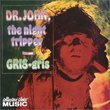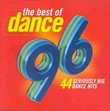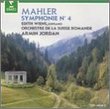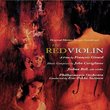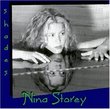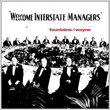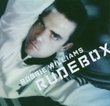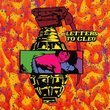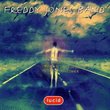| All Artists: Meters Title: Rejuvenation Members Wishing: 8 Total Copies: 0 Label: Sundazed Music Inc. Release Date: 4/25/2000 Album Type: Original recording reissued Genres: Dance & Electronic, Pop, R&B Styles: Dance Pop, Funk, Soul Number of Discs: 1 SwapaCD Credits: 1 UPC: 090771616920 |
Search - Meters :: Rejuvenation
 | Meters Rejuvenation Genres: Dance & Electronic, Pop, R&B
Although their reputation as one of the world's greatest instrumental units never quite translated into mainstream stardom, the Meters turned out a steady stream of remarkable '70s albums whose earthy instrumental textures... more » |
Larger Image |
CD DetailsSynopsis
Album Description Although their reputation as one of the world's greatest instrumental units never quite translated into mainstream stardom, the Meters turned out a steady stream of remarkable '70s albums whose earthy instrumental textures and complex, inventive rhythms were a key influence upon more than one generation of funk and hip-hop artists. 1974's Rejuvenation offers persuasive evidence of the band's seminal status. The album also features one of the Meters' biggest hits, the infectious anthem "Hey Pocky A-Way," as well as such Meters classics as "People Say, "What'cha Say" and "Jungle Man." Sundazed's expanded edition adds alternate single versions of "Hey Pocky A-Way" and "People Say" as bonus tracks. Similar CDs
Similarly Requested CDs
|
CD ReviewsThe best album from the funkiest band of all time 12/29/2003 (5 out of 5 stars) "Not to dis the contributions of other funk masters like Parliament/Funkadelic (who are brilliant in their own right), but NO ONE can make an ass shake like the Meters in their prime. And this is their prime. Actually, every one of their previous releases (which are largely all-instrumental with the exception of "Cabbage Alley") up to this one is a five-star title. After "Rejuvenation," things started to go downhill, even though subsequent albums contained their share of highlights. But, it never got any better than this title. Every song is a winner, and a few are stone-cold classics ("Hey Pocky Way," "Jungle Man," "Just Kissed My Baby"). I've put this on at many a party and have delighted at seeing individuals, seated alone, morose and lonesome in the corner, begin to twitch involuntarily and uncontrollably in response to the rhythms the Meters pour out (this last statement is NOT an exaggeration). This is music which makes people who are not in the know approach you asking, "Who IS this? I gotta get this!" Actually, you may be a bit more familiar with the Meters than you think as a new generation of hip-hop artists has sampled their tracks liberally. Great stuff! Get it, you will not regret it." Y'all are missing the best part griphfunk the rock nasty | provo ut | 12/03/2005 (5 out of 5 stars) "let me just say that i absolutely love this album. i do enjoy the instrumental years, but this is my favorite era. anyway all of the below reviews are missing out on it ain't no use. they either hate it and think it wanders or they just simply mention its length which is around twelve minutes. besides jungle man this is my favorite song on the album. the opening guitar riff almost sounds southern rockish but the tune eventually morphs into a drum driven, funk fest. the closing drum solo is excellent. i would dare say that this is the best in studio jamming i have ever heard and i love tunes that go off into jams. the meters are an excellent group and this album is definately imho their finest. pick it up just to hear the drum solo at the end of it ain't no use, its well worth it. nuff said." CLASSIC METERS for sure! Kari Aevarsson | Iceland | 04/12/2004 (5 out of 5 stars) "According to some, the Meters' earlier instrumental stuff is the one and only "classic Meters". I wholeheartedly disagree. This album is about as classic as it gets! It's just very different from their earlier style, so different in fact that you can hardly compare them.
This is a much more mature and sophisticated work, and without dissing the instrumentals in any way - I love them too! - I must say that this is my favorite Meters album. In fact it's my favorite album of all time! If you are unfamiliar with the funky, funky Meters (possibly the funkiest band of all time? Just listen to the awesome Modeliste/Porter rhythm section!) - this is the place to start. An All-Time Classic from start to finish!" |

 Track Listings (11) - Disc #1
Track Listings (11) - Disc #1
